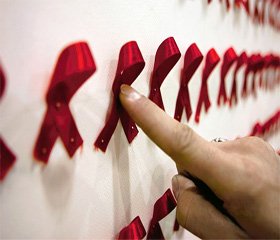Журнал «Здоровье ребенка» 8 (51) 2013
Вернуться к номеру
Analysis of Cases of Pneumocystis Pneumonia in HIV-infected Children in the Autonomous Republic of Crimea
Авторы: Rymarenko N.V. - State Institution «Crimean State Medical University named after S.I. Georgiyevsky», Simferopol, Ukraine
Рубрики: Педиатрия/Неонатология
Разделы: Справочник специалиста
Версия для печати
The incidence of Pneumocystis carinii pneumonia (PCP) in the children has fallen sharply, but did not disappear after the introduction of highly active antiretroviral therapy (HAART) and the widespread use of medical prophylaxis trimethoprim/sulfamethoxazole. One of the reasons for the continued detection of PCP in HIV-infected children in Ukraine is the growing number of cases of children’s HIV infection through breast milk from mothers that were HIV-negative during pregnancy and infected by HIV-positive sexual partners during the period of lactation.
The aim of our study was to investigate the peculiarities of the course of PCP in HIV-infected infants and young children who are treated at Children’s Infectious Diseases Hospital during the period between 2007 and 2013.
We observed 8 HIV-infected children (5 girls and 3 boys) aged from 22 days to 2 years with diagnosis of PCP. Of a total, 5 children were born from HIV-infected women who are at the dispensary, and at 3 children HIV was first detected in the hospital, where they were hospitalized with diagnoses: acute intestinal infection; Cystic fibrosis, sarcoidosis?; obstructive bronchitis, pneumonia.
In 4 children infected perinatally, PCP developed in the first 3 months of life — on day 22, 1.5 months, 2 and 3 months. The other 4 children infected through breast milk, at a later date — 6 months, 8 months, 1 and 2 years. The main clinical symptoms of PCP in the patients were: fever in 7 (87.5 %) patients, drowsiness and dyspnea in 8 (100 %), wheezing on auscultation of the lungs in 5 (62.5 %), pale skin with gray tint at 8 (100 %), decrease in appetite in 8 (100 %) children. Acute onset of the disease was observed in 5 (62.5 %) patients, a gradual in 3 (37.5 %). All 8 (100 %) children required hospitalization in the intensive care unit.
The clinical signs of HIV infection identified in the patients were as follows: generalized lymphadenopathy in 5 (62.5 %) children, hepatosplenomegaly in 8 (100 %), swollen of parotid salivary glands in 1 (12.5 %), reduced (regression of) body weight in 8 (100 %), lymphoid interstitial pneumonitis in 1 (12.5 %), HIV encephalopathy with loss of acquired skill in 3 (37.5 %) patients.
PCP was combined with other opportunistic infections, such as recurrent respiratory tract infections in 4 (50.0 %) patients, candidiasis in 8 (100 %), extrapulmonary tuberculosis (meningitis) in 1 (12.5 %), pulmonary TB 1 (12.5 %), CMV-infection with pulmonary, liver, central nervous system disorder in 2 (25 %), cryptosporidiosis in 1 (12.5 %).
After the microscopic examination of secretions from the upper respiratory tract or sputum, and Pneumocystis detection, all patients were exposed to IV clinical stage of HIV infection (WHO classification, 2012).
The results of basic laboratory studies of the investigated patients are shown in Table 1.
According to CD4 lymphocytes level, very severe degree of immunosuppression is set in 3 (37.5 %) patients, severe in 4 (50 %), moderate degree in 1 (12.5 %) (the classification of HIV-associated immune deficiency, WHO, 2012).
During the first week after PCP diagnosis and initiation of treatment (TMP/SMZ) all patients started HAART: the scheme AZT +3TC + LPV/r was used in 5 children, ABC +3TC + LPV/r — for 1 patient and AZT +3TC + NVP — in 2 children. The treatment was successful in 7 (87.5 %) children who are alive till present, receive HAART, have stable immune status and undetectable VL HIV. In 1 (12.5 %) case, as HIV infection and PCP were first suspected and identified in child of 8 months, almost in the terminal stage of the disease when the rate of CD4 lymphocytes was reduced to a critical level and was only 8% (110 cells/ml), the patient died.
Thus, PCP continues to be a cause of morbidity and mortality in children with immunodeficiency due to HIV infection.


/50_tab/50_tab3.jpg)